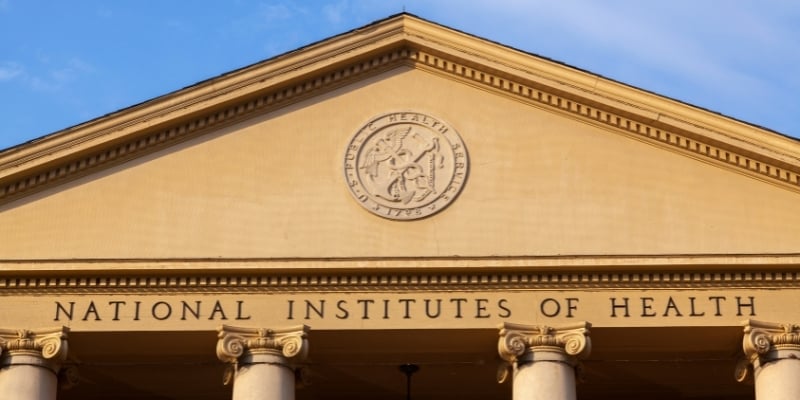The last few weeks have brought a key tool in the fight against coronavirus: Moderna recently announced that a vaccine in Phase 3 trials was nearly 95 percent effective, exceeding even the most optimistic projections. Pfizer and BioNTech have also made similar announcements.
But excitement about a forthcoming vaccine has been tempered by the reality that more and more Americans report having serious reservations about getting vaccinated. Alongside further vaccine development, the incoming Biden administration will need a strategic communication and public outreach plan aimed at fighting what public health experts call vaccine hesitancy.
A panel survey we conducted in May, August and October of this year in six states reveals a steady and troubling decrease in the proportion of respondents who say they will get a COVID-19 vaccine, from 52 percent to 40 percent. Multiple factors seem to be driving this hesitancy. Political ideology is one: conservatives were less likely than liberals to say they would get the vaccine, but hesitancy increased more among liberal respondents over time. Hesitancy also varies across states. And like so much else in America, vaccine hesitancy is tied to race: rates of vaccine acceptance are substantially lower among Black respondents and higher among Asians, compared to White and Hispanic respondents.
Since vaccines work by building herd immunity, a refusal to vaccinate among large segments of the population would deal a serious blow to any disease control strategy. Just as experts in immunology have been at the forefront of vaccine development, turning the tide on vaccine hesitancy will require a joint effort led in part by people who understand risk perceptions and human behavior. As Biden's coronavirus task force gets to work, it would do well to reach out to experts in risk communication, the social sciences, public relations and community engagement to work alongside medical and public health professionals.
Behavior change sciences should guide communication efforts. Perceptions of response efficacy (will this strategy work?) and self-efficacy (am I able to undertake this strategy?) play a key role in risk reduction behaviors, and our data show high levels of concern about the efficacy and safety of an eventual COVID-19 vaccine. Messaging should underscore vaccine effectiveness, highlight safety data and increase self-efficacy by addressing affordability and access. President-elect Biden's pledge to make the vaccine free for every American is key.
A one-size-fits-all approach to vaccination campaigns is unlikely to work. For many, wariness about the COVID-19 vaccine is intertwined with distrust of the current administration. In October, more than half of respondents (56 percent) said they did not trust the federal government when it comes to the COVID-19 vaccine, and 58 percent said they somewhat or strongly disapproved of President Trump's handling of the COVID-19 pandemic. Biden's COVID-19 plan calls to de-politicize vaccine development and distribution by putting scientists in charge of efficacy and safety decisions, releasing clinical data for FDA-approved vaccines and having officials testify before Congress to explain the approval and distribution process. These steps appear well-positioned to appeal to those wary of President Trump's approach.
Given the disproportionate impact of the pandemic on Black and Brown communities, specific attention to overcoming justifiable mistrust of the medical establishment and vaccine hesitancy among these groups should also be prioritized. Dr. Marcela Nunez-Smith's appointment as co-chair of the Biden COVID task force signals a strong commitment to health equity. Experts in community engagement and members of underrepresented communities must also be included in the design of distribution and outreach strategies.
Finally, risk perceptions and responses are tied to underlying worldviews and ideologies. Messages emphasizing the collective nature of COVID-19 risk ("We all need to do our part") are likely to resonate with liberals and egalitarians, but appealing to conservatives and individualists—and, yes, Trump supporters—will require different approaches. Giving credit to the current administration for its role in advancing vaccine development, promoting the benefits of vaccination for economic growth and emphasizing themes of personal responsibility and duty to protect one's family are possible steps in this direction.
As we have seen with mask wearing, politicizing public health has dire consequences. We cannot afford to let vaccines follow the same path. Addressing the root causes of vaccine hesitancy, including sustained efforts to measure changes in attitudes about vaccination over time, should be at the core of the incoming administration's COVID-19 response strategy. The nation's—and the world's—ability to move beyond this pandemic depends on it.
This op-ed was written by the Risk & Social Policy Working Group, an interdisciplinary team of scholars formed to study risk messaging and public policy during the COVID-19 pandemic. The members include:
Elizabeth Albright, Duke University; Danielle Blanch Hartigan, Bentley University; Tom Birkland, North Carolina State University; Deserai Crow, University of Colorado, Denver; Rob DeLeo, Bentley University; Katie Dickinson, Colorado School of Public Health; Elizabeth Koebele, University of Nevada Reno; Lindsay Neuberger, University of Central Florida; Jennifer Roberts, University of Maryland; Elizabeth A. Shanahan, Montana State University; Kristin Taylor, Wayne State University; Courtney Welton-Mitchell, Colorado School of Public Health.
This guest commentary originally appeared in the Newsweek and was co-written by ColoradoSPH faculty members Katie Dickinson and Courtney Welton-Mitchell






